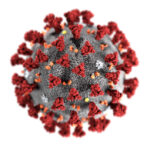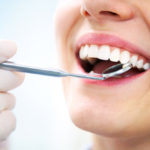Tips for Great Oral Hygiene
How you can stay healthy and avoid dental complications

Taking good care of your Teeth is Important
A lifetime of care is required to achieve healthy teeth. Even if you’ve been told you have nice teeth, it’s critical to take the proper steps every day to care for them and avoid problems. This includes using the proper oral care products and being mindful of your daily habits.
Brush your teeth before going to bed
It’s no secret that brushing your teeth at least twice a day is generally recommended. Even so, many of us continue to skip brushing our teeth at night. Brushing before bed, on the other hand, removes germs and plaque that accumulate throughout the day.
Brush the Right Way
The manner in which you brush your teeth is equally important; in fact, doing a poor job of brushing your teeth is nearly as bad as not brushing at all. Take your time, moving the toothbrush in gentle, circular motions to remove plaque. Unremoved plaque can harden and cause calculus and gingivitis (early gum disease).
Pay Attention to your Tongue
Plaque can also accumulate on your tongue. Not only can this cause bad breath, but it can also cause other oral health issues. Brush your tongue gently every time you brush your teeth.
Make sure your Toothpaste has Flouride
When it comes to toothpaste, there are factors to consider other than whitening power and flavor. Make certain that the version you choose contains fluoride.
While some are concerned about the effects of fluoride on other areas of health, this substance remains an important component of oral health. This is because fluoride is a powerful anti-cavity agent. It works by fighting germs that cause decay and acting as a protective barrier for your teeth.
Flossing is just as Important
Many who brush regularly neglect to floss. It is very important to make sure that you clear out the food particles that can accumulate over time in areas that your toothbrush does not reach. Flossing once a day can dramatically improve your oral health.
Add Mouthwash to your routine
Advertisements make mouthwash appear to be necessary for good oral health, but many people avoid it because they don’t understand how it works. It neutralizes acid in the mouth, cleans hard-to-reach areas in and around the gums, and remineralizes the teeth.
Ask for information from your dentist about specific mouthwash recommendations. Certain brands are recommended for children and those who have sensitive teeth. There is also prescription mouthwash available.
Stay Hydrated
Water is still the best beverage for your overall health, including your oral health. Drinking water after each meal can help wash away some of the harmful effects of sticky and acidic foods and beverages in between brushes.
Watch what you Eat
Fresh, crunchy produce not only contains more fiber, but it is also the best choice for your teeth. Sugar eventually turns into acid in the mouth, which can erode the enamel of your teeth. Cavities are caused by these acids. Acidic fruits, teas, and coffee can also cause tooth enamel erosion. While you don’t have to avoid such foods entirely, it never hurts to be aware.
Visit the Dentist Twice a Year
Your daily habits are critical to your overall oral health. Even the most diligent brushers and flossers require regular visits to the dentist. At the very least, you should see your dentist twice a year for cleanings and checkups. A dentist can not only remove plaque and check for cavities, but they can also identify potential problems and offer treatment options.
Some dental insurance providers will even pay for more frequent dental checkups. Take advantage of this if it applies to you. This is especially important if you have a history of dental problems, such as gingivitis or cavities.
Sources:
- Mayo Clinic Staff. (2013). Oral health: Brush up on dental care basics.
mayoclinic.org/healthy-lifestyle/adult-health/in-depth/dental/art-20045536 - Seal out tooth decay. (2012).
nidcr.nih.gov/OralHealth/Topics/ToothDecay/SealOutToothDecay.htm - Taking care of your teeth and mouth. (2015).
nia.nih.gov/health/taking-care-your-teeth-and-mouth
Call Prima Family Dental at 781-944-4450 and make an appointment with us today.



